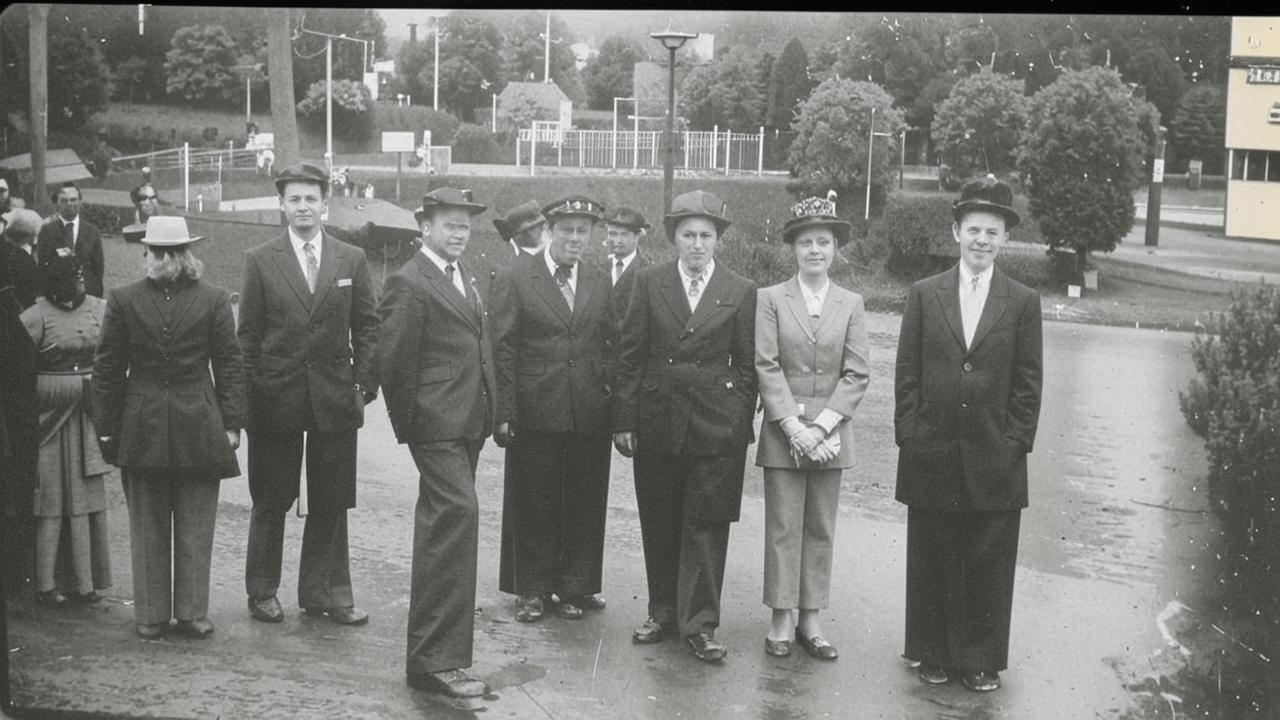People periodically ask themselves the question: “What is it all for? What is the meaning of life?”. There can be a global philosophical reflection, but more often such thoughts concern themselves. It’s about personal goals in life, one’s interests. We want to live a meaningful life.
If you can’t answer these questions, there may be a desire to change your life And here comes the most important problem. How to find that very goal, which will become a guiding star and ignite interest in life? Let’s deal with this difficult matter together with psychologist Ekaterina Korovushkina.

Psychologist, expert of the online school of psychological professions “Psychodemia”
“The purpose of life is the biggest task that one wants to realize. A person can have many big tasks: to build a successful career, to live in a house near the forest, to create a happy family. But the purpose of life is the most important. Although no one forbids to include in it all of the above-mentioned”.
You can make goals out of any desires, but they will turn into a goal only at the moment when they acquire a clear form. It is important that some actions are directed towards their achievement.
Unlike dreams, the purpose of life implies constant labor, daily work. If you think about what is important to you every day and do something for it, it means that you are going to your goal.
A goal is a future desired result. Setting it helps to structure, organize and begin to control your activity. In general, it teaches you to take responsibility for your life.
Most often when the word “goal” is mentioned, a material object appears in front of our eyes. In fact, you can set them in absolutely any area of life. Set goals in career, health, family, social or spiritual spheres. Everywhere you want to change something in your life, you can deploy a field of activity.

Goals can be categorized into:
- long-term (strategic) – for a period of 5-10 years or more. It is understood that your strategic goals are based on your values and priority system (or are they at all, if you are not ready to formulate clear objectives for a long period of your life);
- Medium-term (tactical) – for a period of one to five years. Tactical goals, in turn, are based on strategic goals, but are more detailed and tied to the current reality;
- short-term goals – for a period of up to one year. Short-term goals are the most understandable, and therefore should be formulated as clearly and in detail as possible. They, in turn, can be divided into quarters or by months.
A correctly set goal is a powerful motivator, a source of energy and inspiration. It energizes optimism and fills life with meaning. If your goals make you work hard, cause stress and overload – perhaps they need to be reviewed and adjusted. Also, remember that it’s perfectly normal for some global goals to lose their relevance. We live in a world that is constantly changing, so goals can transform or disappear altogether.
Why is it normal not to have goals?
The cult of productivity that dominates our society nowadays imposes the idea that if you don’t hold a high position, own an apartment, a car or have never been to Bali, there is something wrong with you. Perhaps you just haven’t set goals in time… Or you haven’t been able to achieve them.
However, it’s important to realize that you have every right not to have any goals. Except at work, in case you are required to have them.
In your personal life, which is only yours and in which you are not obliged to achieve the set indicators, it is quite possible to be happy without goals. And it’s also possible to be unhappy with 10 perfectly formulated ones.
Perhaps, in your case, you should abandon goals altogether, putting life values in their place. Follow them. For example – the value of being productive. It’s an aspiration that you can always follow. Or the value of being a good father, which can include activity in matters of education, and joint travel with children. The only thing left is to decide what you want to focus on in the near future.
If you still want to systematize your dreams, desires and turn them into goals, then let’s try to find and formulate them according to the rules. In fact, it is not so difficult.

How to find a goal in life?
Sometimes it’s very tempting to copy other people’s goals, but there are no universal ones. What suits your coworker may absolutely not suit you. On the “copy” you can spend a lot of time, and having achieved, get disappointed and depressed, because it is not what you really want.
A goal is really good if you feel warmth and attraction when you think about it, if you just like it, without any “well, everyone wants it”.
“What do I want personally?”, “What makes me feel happy”. – it’s important to ask yourself these questions. Buy a new suit or a dog? To feel more valued at work? These are great desires. They may need to be tweaked or refined, but they’re perfectly viable and can be great short-term goals.
What do you enjoy doing in your free time? Write it down. Look at the list in terms of possible goals. Now think about what you don’t want to do.
For example: “I don’t want to go to a job I hate” or “I don’t want to have a bad relationship with my wife.” Now turn these into positive goals, restate them in a positive way. For example: “I want to get a job I like.” Bingo! We have a great tactical goal worthy of elaboration and capable of making you happy.

So how exactly do you formulate your goal so that it’s easier and more productive to work with?
One popular and really working goal setting technique is SMART.
SMART-methodology was first proposed by Peter Drucker in his work “The Practice of Management” (The Practice of Management) in 1954. Since then it has been actively used both in the management of organizations and in personal planning.
So, according to the methodology, the goal should be:
- S – Specific –specific, transparent, definite. The goals should be as clear and understandable as possible. Avoiding double interpretations and subjective judgments. For example: not to lose weight, but to lose 7 kg.
- M – Measurable – measurable (there should be objective measurers). Everything that we can’t count is unmanageable. Let’s return to kilograms – we can weigh them and understand whether we have achieved our goal or not.
- A – Attainable – attainable, realistic. If you don’t know how to drive a car now and have never even tried, it is unlikely that in a week you will get a driver’s license. Even if you really want to. But to get it in two months, having undergone training, is quite realistic.
- R – Relevant – Relevant, Relevant, Relevant. We don’t set goals we don’t believe in. We don’t set a goal for something we basically don’t need. Dreaming about flying into space is possible, but setting a goal to fly there tomorrow is more of a fantasy (unless you are Ilon Musk, of course), and it is not really necessary.
- T – Time-bound. We tend to shift goals without a precise time frame: “It’s been two years since I’m going to start running”. So remember to not only set goals, but also decide when you’re going to accomplish them.
And what to do if you have goals, but you can’t take action to realize them?
When you don’t want to do anything and everything is lazy, perhaps there is some inner belief or repressed emotions that control your actions. Do not scold yourself by forcing yourself to work from under a stick. It is better to listen to your inner voice, recognize your fears and try to release the resources blocked by these beliefs. If you do not succeed on your own, you can turn to a psychologist.
Another condition for staying motivated is self-compassion. Treat yourself with understanding, acceptance and warmth at the moment when you fail or are upset about something.
Achieving a goal is a process of many steps, and even if you stumble at any of them, it is important not to berate yourself for a mistake or lack of effort. You just need to analyze what went wrong and why, draw conclusions and integrate this experience into future actions.
Ups and downs are normal components of any journey. The main thing is not to give up and move on. Praise yourself for small victories and remember that even micro-steps towards a big goal every day will still bring you closer to it.

How to motivate yourself on the way to your goal?
Watch your diet. It largely determines the motivation of a person, influencing his or her well-being and productivity. You already know about sports, trips to nature and regular check-ups. Sometimes the best rest for regaining motivation is a change of activity.
Make time for your favorite activity, hobby, even if your big goals require attention. The brain is so organized: when it sees success in one area of life, it extrapolates it to everything. This means – you will be sure that you can not only cook a kebab perfectly, but also accurately cope with the task of shedding the consequences of eating it.
Sometimes it seems that “the matter is beyond you” because the steps to achieve the goal seem too general and incomprehensible. How then to motivate yourself to get the job done? Break each step down into a series of mini- or even micro-steps, each one clear and accessible to you.
Give yourself permission to fail. Accept the fact that everyone makes mistakes. There are no bad outcomes. They all bring us valuable experiences.
Engage in self-development. If a system does not evolve, it degenerates. Nothing stays at the same level forever. Read inspiring books, subscribe to thematic blogs, communicate with like-minded people.

Now it has become popular to unite by interests: flower growers, medics, psychologists, lovers of construction or proper nutrition. You can find a community to your liking both in the real world and in the online environment. This is a great way to not only get the information you need, but also motivation for further development. People from your “topic” can understand, sympathize, advise, support, as they have already gone through the same stages as you.
It’s important to realize another thing as well. If you feel that communication becomes a burden, and advice turns into moralizing or takes on a tone that is unpleasant for you, you always have the right to stop this toxic communication.
You can also look for partners for joint activities among colleagues, friends or relatives. This way you can encourage each other, somewhere not to let you slip off the path, somewhere to sympathize and not let you fall into despondency. People learn “about people”, so society can be a great school.
To summarize, I would like to remind you once again that you don’t have to set goals if you don’t have the desire. You don’t have to follow conventional standards and want what everyone around you wants. But if you have a need to set goals, you should do it. How exactly you set them is not so fundamental. The important thing is to move towards their fulfillment.






